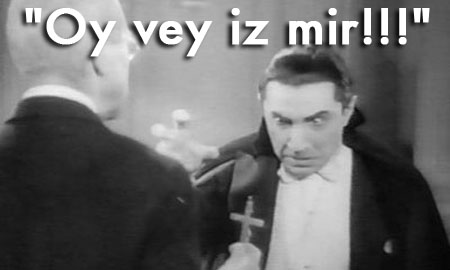Halloween—the night of disguised merriment and childhood dreams. The night where it doesn’t matter if you were an all-star on your high school baseball team, genius enough to discover the theory of relativity, or had the body of an angel—you could don a mask or a leotard or some face paint and you’d leave your old self completely forgotten in a pile of dust and books.While for many, Halloween is a cherished night of partying, some people in the Jewish community think halakhic law prohibits its celebration because of its pagan and Christian roots.

Historically, Halloween began as a harvest festival in Celtic communities celebrating the end of summer with a holiday known as Samhain. This was the night when the souls of those who had died were thought to return to visit their homes. People kindled bonfires in order to frighten away any evil spirits that might come along, and they wore masks to hide themselves from any ghosts lurking nearby. Later, as the Roman Catholic Church rampaged throughout Europe, converting all in its wake, adherents to the old rite refashioned the festival of Samhain into All Saints’ Day on November 1st as an effort to absorb the pagan tradition into Christian thought. Since the local communities were slow to forego their favorite holiday, the evening before All Saints’ Day became a holy, or hallowed night, emphasizing many of the old pagan traditions and bearing little connection to the new Christian theology.

Over the centuries, Halloween has developed into a secular holiday, leaving its religious beginnings far behind. While it originated as a pagan and then Christian holy day, you’d be hard pressed to find a person today celebrating for religious or ritual reasons. As the Irish immigrated to the United States, they brought their loosely remembered traditions with them, including the night with which most Americans are now familiar. By celebrating a night as firmly ingrained in the American identity as Thanksgiving and the Fourth of July, you are celebrating the culture of the country in which you currently live; and being American does not inherently distance anyone from being Jewish.
In fact, the lessons of darkhei shalom (the ways of peace) and eiva (the concept of contingent yet latent hatred towards Jewish people) teach us that celebrating American holidays promotes a sense of community with our Jewish and gentile neighbors. By not participating, and certainly by condemning Halloween simply out of xenophobia, we are losing an opportunity to bond with our neighbors and possibly incurring their resentment.
The halakhic recommendation of caution is outweighed by the opportunity that Halloween affords and by the reality of what Halloween is today. Halloween has become neither pagan nor Christian but rather an excuse for corporations to mass-manufacture popular costumes and sugary treats. Halloween serves as an American as a financial marketing tool, cleverly packaged to attract young children and eager party-goers into its festive atmosphere.

Yet while this may be fundamentally true, rabbis of varying degrees of observance naturally have divergent viewpoints.
Reform Rabbi Jeffrey Goldwasser, member of the Central Conference of American Rabbis (Reform), asserts that “There is no religious reason why contemporary Jews should not celebrate Halloween as it is commonly observed by dressing in costumes, giving children candies and other treats, and by taking our own young children out to Trick-or-Treat.”
Orthodox Rabbi Michael Broyde, director of the Religion & Law Program at Emory University, could not disagree more. He holds firmly to the opinion that “One should not send one’s children out to trick or treat on Halloween, or otherwise celebrate the holiday.”
Needless to say those who wish to find fault with Halloween undoubtedly will find biblical backing, while those who do not see Halloween as religious will not. In the end it’s all up to the individual’s understanding of Halloween and the degree to which they partake in American traditions.
As to the argument of Jews not ‘needing’ Halloween because we have the carnival celebration of Purim, the two are decidedly not mutually exclusive. The argument stands that Purim is a morally superior holiday, as it teaches our children to give anonymously rather than take ungratefully from strangers. I would argue, however, that Halloween isn’t about the demanding, but rather about the community coming together and giving to each other. And if you want to make Halloween ‘more Jewish,’ you can always try a little tikkun olam (repairing the world) and trick-or-treat for UNICEF (United Nations Children’s Fund).
So why not be Esther for Halloween? It all depends on the way you choose to look at it.

